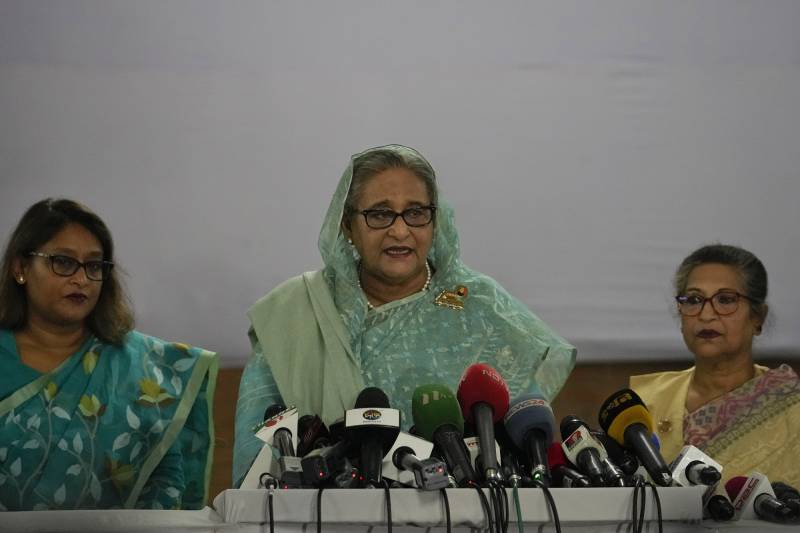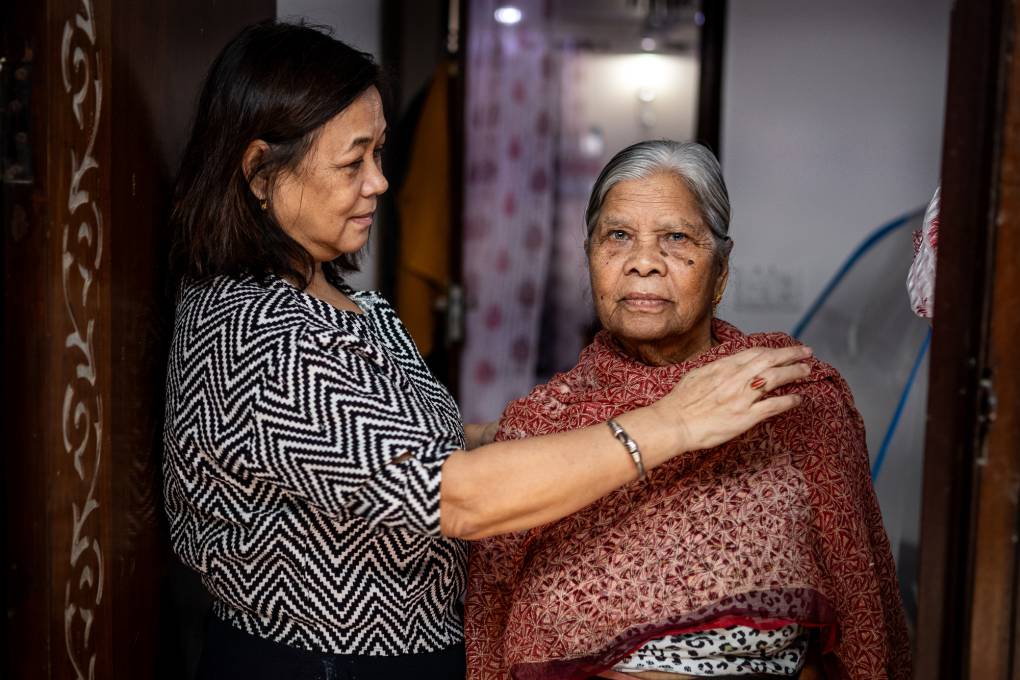“The student movement is not new,” she said. “It’s been there.”
She hopes student movement leaders have a say in the new government and that queer, trans, housing insecure and Indigenous people are not overlooked.
Tarannum Sahar, a recent graduate of UC Berkeley who helped organize a solidarity rally on campus and has family in Bangladesh, said she was “in absolute awe and gratitude of the 2024 student-led movement that fought against the violent state repression and led Bangladesh to freedom.”
Led by university students, the conflict began with peaceful protests over the allocation of civil service jobs. Since mid-July, protesters have clashed with police and supporters of Hasina’s government. At the end of July, police imposed a strict curfew with a “shoot-on-sight” order across the country as military forces patrolled parts of the capital, and as the deaths mounted in the last week, protesters demanded Hasina’s resignation.
“Even just two weeks ago, we would not have imagined this,” Sahar said. “But the students of Bangladesh led the movement with sheer courage and conviction, and did not back down even in the face of something as horrendous as a ‘shoot-on-sight’ order.”
The Bay Area Bangladesh Association helped organize a protest against the violence at the end of July in Fremont, saying it was “deeply concerned about the recent developments in Bangladesh regarding the student protests for quota reform,” according to a statement at the time from association president Mushfiqur Rahman.
“The violent actions taken against peaceful student protesters are alarming and unacceptable,” he added. “This is a blatant violation of human rights and freedom of speech, which are fundamental to any democratic society. We strongly condemn these actions and stand in solidarity with the brave students of Bangladesh.”
Moving forward, Sobhan and others will monitor the interim government and how the protesters respond.
“There’s freedom now, and this prime minister has resigned. But what’s next?” Sobhan said. “It needs to be done really carefully and sensitively and with a lot of intention and integrity.”

